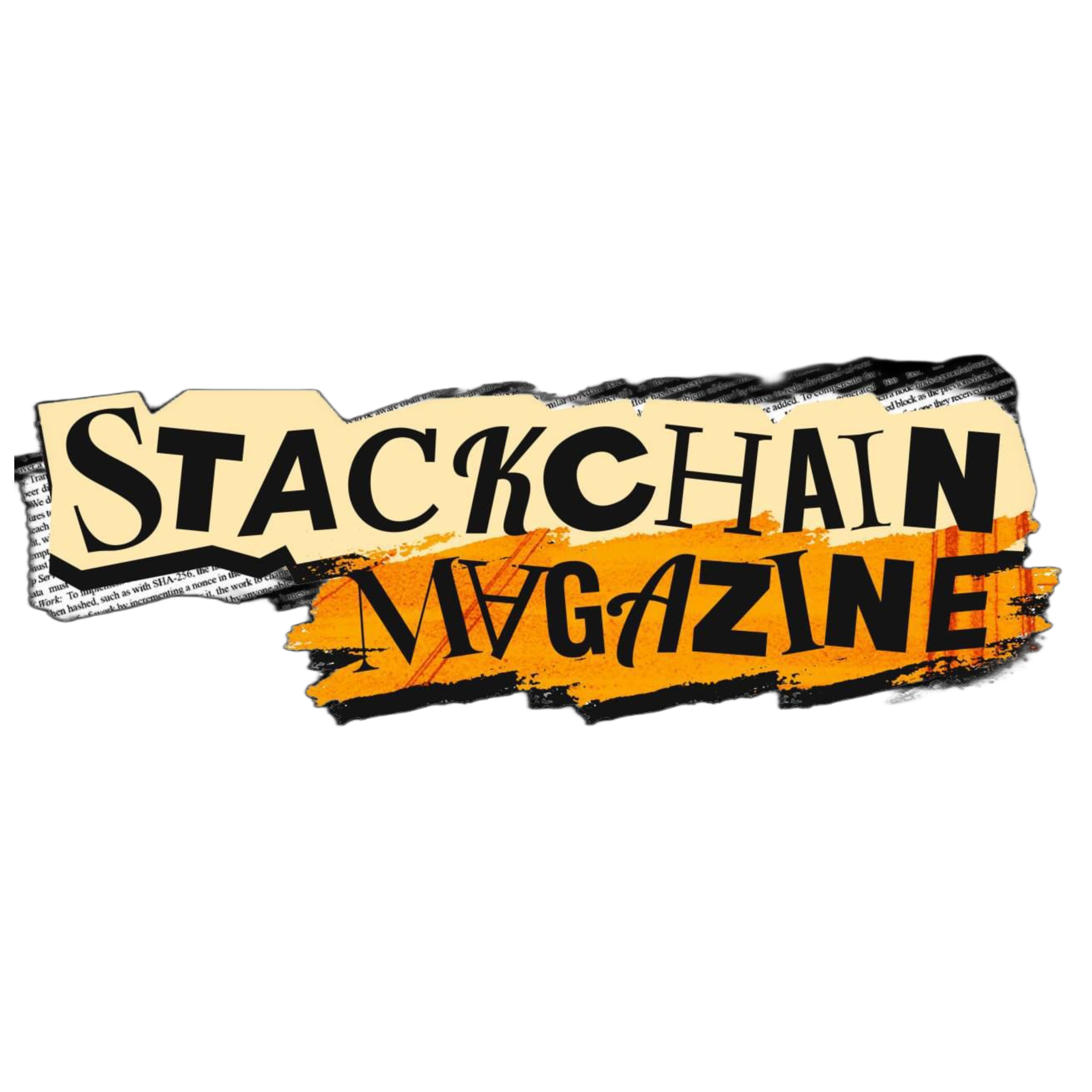____
How to get hired in Bitcoin
Written by David Waugh, Business Development and Communications at Coinbits, Dave Birnbaum, Director of Product at Coinbits, and Arsen Thagapsov, Social Media Lead at Relai
Looking for a Bitcoin job?
Well, you’re in the right place. But why should you listen to us? Because we work in the Bitcoin industry, and didn’t always – so we are familiar with the challenges of making the transition.
Alright, let’s get into it.
The number one thing you can do to get hired – in any industry – is stand out. And standing out from the crowd is even more critical in a small, but growing, niche industry like Bitcoin. Today, there is far more demand for Bitcoin jobs than supply.
Don’t let that discourage you – we’re here to help. Here’s a step-by-step process that anyone can follow to transition their career to an industry like Bitcoin:
Learn the industry
Establish a brand
Create your Proof of Work
Network your ass off
Follow up and keep adding value
Let’s unpack.
Learn the industry
If you’re new to Bitcoin and excited about pursuing a career in the industry, we are here to temper your expectations. Bitcoin tends to attract people who have an excess of passion as compared to useful knowledge. That’s okay. Passion is the key to staying motivated and meeting challenges. However, being realistic about where you are in your Bitcoin journey can only help since it will let you spend your time as wisely as possible to move to the next level.
When you are new to Bitcoin, your goal is to build a strong foundation. Keep earning fiat at your fiat job and stack sats while researching Bitcoin in your spare time. Plan to apply for Bitcoin jobs in a few months or years – you’ll know you’re ready when you’re ready.
Read, read, read (and watch some videos)

If you’re new to Bitcoin, expect to spend significant time reading books and watching videos to learn the lay of the land.
Videos play an important role because they allow you to familiarize yourself with the voices and faces of the industry. For visual learners, they can facilitate knowledge retention.
However, don’t underestimate the importance of reading quietly. The core of Bitcoin knowledge is contained in books and long-form essays and these will form your intellectual basis for your new career.
Do you try to read a few minutes before going to bed but find it difficult to focus on dense material that late in the day? Set aside reading time as part of your morning routine. You may find that reading early when your energy and caffeine levels are high is not only easier than bedtime reading, but also helps motivate you for your day.
Assemble your own Bitcoin Starter Pack
Ask ten Bitcoiners for the best way to start learning about Bitcoin, and you will get ten different answers. Here’s our suggestion: assemble your own Bitcoin Starter Pack with an achievable number of segments. Here’s one example:
Complete the Bitcoin for Everyone course at Saylor Academy. This course is free and includes many of the most important blog posts, videos, and podcast episodes in the history of Bitcoin, all in one place. Completing this course will also teach you the names of many of the important personalities in the space so that you can follow their content later.
Choose one or two prominent podcasts to put on rotation when you’re working out or doing chores, like Bitcoin Audible, The Stephan Livera show, or What Bitcoin Did.
Read at least three hard books. We like Broken Money by Lyn Alden, The Bitcoin Standard by Saifedean Ammous, and Bitcoin Is Venice by Allen Farrington and Sacha Meyers.
Read the original Bitcoin whitepaper by Satoshi Nakamoto. You can find all of the information contained in the whitepaper in other sources, but if anyone asks if you’ve read the whitepaper, you need to be able to answer truthfully that you have.
Bitcoin generalists are a dime a dozen. The industry is desperate for specialists.

Most Bitcoin companies are fast-paced startups that need employees who can hit the ground running. Getting hired as a beginner will be difficult unless you have a unique skill set.
Bitcoin is only 14 years old. There are no experts. And at the same time, everyone’s an expert. That’s why specializing is necessary to stand out in a competitive field with a job supply/demand imbalance. You won’t get this experience on the job, simply because others are willing to develop the skills of a specialist in their spare time, and you are competing with them.
You can distinguish yourself from the field of generalist candidates by specializing in a domain such as mining, lightning, custody, or banking. Decide which one is the best fit for you, and then dive as deep as possible.
Stay in the loop. But be wary of doom loops.
Keeping up with new developments in the industry will give you awareness of new job opportunities as they arise. Most companies hire from their network without ever posting a job ad. This is why you need to be active and present in the online, and offline, Bitcoin communities. Stay engaged so that you don’t miss important opportunities.
On the other hand, staying engaged definitely does not mean doom scrolling Bitcoin Twitter – this can create an illusion of engagement and pose a dangerous distraction.
Consume content wisely
Unless you are tuning your career to pursue political activism or humanitarian causes that intersect with Bitcoin, be cognizant of how much time you spend consuming content about these. They engage your emotions and give you euphoric sensations of virtue by allowing you to feel that you are somehow helping an important cause just by consuming content.
Nothing could be further from the truth. Building a successful career in Bitcoin requires hard skills. When choosing what kind of content to consume, consider non-bitcoin content that will nonetheless uplevel your skills: learn about engineering, business, finance, product design, and so on.
Establish a brand
Building a personal brand is the number one thing you can do to differentiate yourself from other job seekers. However, this process is often misunderstood. Building a brand is not the same as building a follower count or posting things that get you likes or comments.
Be realistic about privacy
Bitcoiners tend to be concerned with privacy, and that’s a good thing. However, we have seen some folks who would otherwise be able to add a lot of value to the Bitcoin movement become frozen by fear of losing their privacy. As a result, what they have to offer remains unfulfilled.
We are here to suggest that, for most people who want to live up to their potential, over-optimizing privacy is a dangerous distraction. Some kinds of Bitcoin jobs can be done pseudonymously or anonymously, such as writing open-source code. However, that is not practical for the vast majority of people.
Many Bitcoiners who understand the potential for Bitcoin to improve the lives of billions of people come to the conclusion that it is just too important, and the risk associated with losing some privacy is worth taking.
Take your online presence seriously
Your online presence serves as a showcase of your skills, values, and interests to potential employers. Everything you say and do online is an implicit part of your job application. Any good hiring manager will look you up online. If they like what they see, they just might give you a chance.
Work isn’t the most important part of life – that’s family – but your job is where you apply your talents. If you have an online persona that is irreverent or edgy, although it may be fun to maintain, it could be at odds with your career goals. An undisciplined online presence can limit your career and, ultimately, the amount of impact your talents can have. Take the time to clean up your posting history and professionalize your online persona going forward.
It’s not all about Bitcoin
Your online brand doesn’t need to be about Bitcoin to help you in your career development. In fact, unless you already work in the bitcoin industry, it is impossible to have an authentic online presence that is all about Bitcoin and that adds value to your job application. Your online presence should, first and foremost, showcase your accomplishments, skills, and experience – and only secondarily your passions, aspirations, and ideas.
Centralize your online presence with a personal website
Bitcoiners love decentralization, but in the case of your online presence, centralization is good. If a prospective employer can check out a well-maintained personal website that captures your skills and achievements, they are less likely to feel the need to dig through social media to find information about you. Buy a domain name and create a site that presents yourself exactly as you want to be presented, and keep it up to date.
If you feel moved to express yourself online, instead of posting on social networks, write polished blog posts that you host on your website. You can always share links to posts on social media or reuse your own content there. Keeping all your online musings in one place will allow you to build a body of work that you can be proud of for years to come.
Create your Proof of Work
You probably know by now that the consensus mechanism used by Bitcoin is called Proof of Work. This phrase has a technical definition, but the Bitcoin community has extended its meaning to refer generally to an ethos that prioritizes action over ideas, grit over privilege, and results over appearances.
Bitcoin employers are looking for Proof of Work from candidates. It is essential to show potential employers that you have already put in work to contribute to Bitcoin in some way. Whether or not this is fair, or the way things should be, is beside the point. Other people looking to enter the Bitcoin space are doing it, so you must, too. The three highest leverage Proof of Work activities are contributing to open source code, organizing meetups, and building a portfolio.
Contribute to open source projects
Bitcoin was created by volunteers. It is open source, and so are many of the most exciting software projects in the space. If you are an engineer, contributing to an open-source Bitcoin project is by far the best way to spend your time building your Bitcoin resume. It will teach you a tremendous amount about how Bitcoin works, build your professional network, and generate goodwill.
Organize a meetup
Organizing in-person meetings is a very high-leverage activity because this is where interpersonal connections with other Bitcoiners are established. In-person networking develops your leadership and communication skills, both of which will be to your advantage in any job. If you live in a city with an existing meetup, look for opportunities to give presentations, ask questions, schedule guest speakers, and invite friends.
Build a portfolio by working on projects for free
Yes, for free. By offering value up front, instead of asking for stuff, you gain the opportunity to show your skills, receive feedback, get better at what you do, and build things that you can point to later as achievements. A strong portfolio will allow you to walk into a job interview and confidently speak to your experience building a list of things that are now out in the wild – and this is more valuable in the long term than insisting on working only for compensation, which will severely limit the number of projects that are open to you.
A note on content creation as Proof of Work
Another great way to show Proof of Work is to build an online community around a particular facet of Bitcoin by hosting a podcast, making videos, or rallying a subgroup of social media users. This is a good choice if you have an aptitude for marketing or want to build a career in content creation. However, for some reason, people other than marketers tend to assume that content creation is the default Proof of Work activity, perhaps because we all consume a lot of content online.
If you’re a marketer, or an aspiring marketer, go for it. Just keep in mind that producing content is all about consistency and polish, and no matter how much time you budget for content creation, it is likely to take far more time than you anticipate. If marketing is not part of your aspiration for your Bitcoin career, you may want to consider pursuing a different Proof of Work.
Network your ass off
If you’ve read this far, you could likely predict that we are not big fans of impersonal job boards. In most cases, time spent writing cover letters for cold job applications would be better spent building a track record in one of the ways suggested above.

Once you know which subdomains and which companies within those subdomains interest you, get to know the people who work there. Don’t be discouraged if there are no job openings. Play the long game, build your reputation, and keep earning fiat until the right opportunity comes along naturally.
Follow up and keep adding value
Don’t just send your applications and wait. Instead, take a proactive approach and follow up with companies. However, it’s important to avoid overwhelming the recruiting manager with multiple spam messages asking for a decision.
Instead, provide the recruiter with helpful information to make their decision-making process easier, such as:
Examples of how you would do the work
Your previous work (yup, your proof of work)
Ideas on how the company could make more money
Bitcoin’s global money protocol is there for whoever needs it. If bringing Bitcoin to a wider audience excites you more than anything, it might be time to join the space professionally. And if you are hungry and put in the work, the industry will find its way to you.
____________________
Note from Stackchain Magazine: No Bitcoin (or inferior monies) were exchanged for this article. We’d also like to thank, David Waugh, Dave Birnbaum, both from Coinbits, and Arsen Thagapsov, from Relai. It’s always nice when our little pleb community art project gets contributions from builders.




